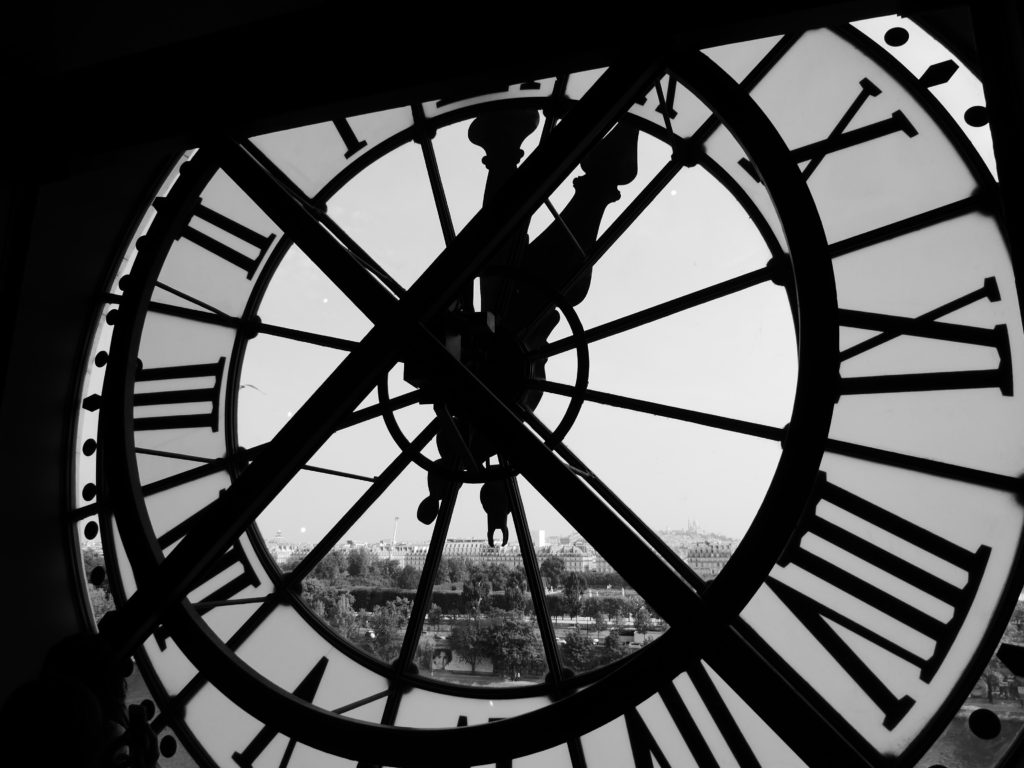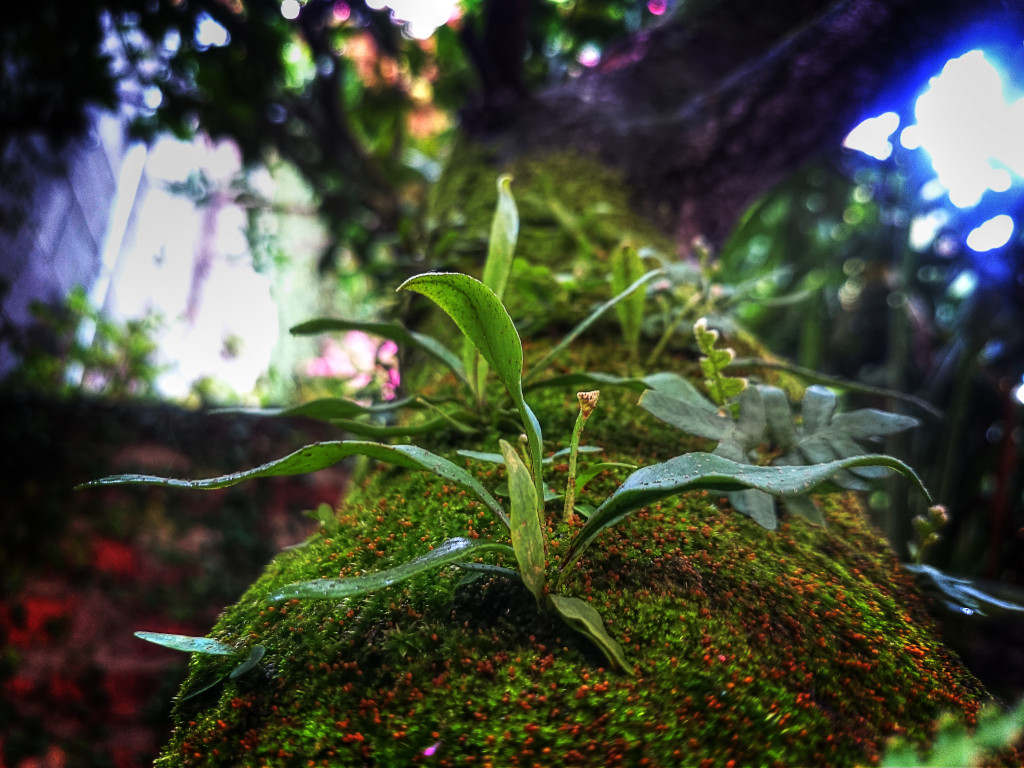I have a confession: I make mistakes. I know, that doesn’t seem like much of a confession because everybody makes mistakes, but with the amount of shame and fear that comes up from admitting it, you’d think I killed a man and buried his body in the backyard.
I notice the intensity of shame and fear shifts according to my perception of safety around making a mistake. If I make a mistake and the only person affected is me, for instance, the shame and fear levels are low. If I make a mistake at work, the shame and fear levels are high. The levels spike because my brain starts telling me the story, “I’m going to get fired! I’ll be destitute!” In my mind, the only way to stay safe at work or in my relationships is to be perfect. If I’m not perfect, something bad will happen. It’s not entirely logical but when are emotions ever logical?

When I typed in “perfection” this is what came up. Photo by Bill Williams on Unsplash.
This week when I made mistakes, I gave myself the basic mothering and fathering messages I learned in therapy: “I’m here. I’m not going anywhere. I’m not ever going anywhere. I’ll protect you. I’ll meet all your needs. Nothing about you will keep me from meeting your needs.” It helped. It also helped reminding myself security doesn’t come from other people or an external source. Security comes from me and from higher power. Money for instance doesn’t come solely from a job. It can come from an inheritance or the government or whatever. If I lost my job tomorrow, I could borrow money or start a GoFundMe campaign or any number of things.
When I’m stuck in perfectionism, my perspective shrinks and I think in black and white. However, the world is in color and much more nuanced than I remember. When thinking about perfectionism, I was reminded an early definition of perfect is, “Brought to consummation or completeness.” That’s coming from the 1913 Webster’s Writers’ Dictionary. As a one on the Enneagram, I’m all about finding holy perfection, and the practice for me is to remember “perfect” doesn’t mean without mistakes, rather, it means completeness.
Completeness ultimately means unification with a power greater than myself, according to my spiritual tradition. I meditate and live my life in such a way that I’m moving closer and closer to a divine entity. I’m trying to unite and merge with something much subtler than I am. When I’m stuck in perfectionism, I lose sight of my journey and instead focus on a snapshot in time. I forget I’m learning and growing. I forget mistakes are an integral part of the process.
Will I still make mistakes? Yes. Will I still beat myself up about them? Probably. But more and more I’m using tools to come out of it, to love myself, and to be in the space of seeing holy perfection.
I dream of a world where we remember in our quest to be perfect, really we want safety, peace of mind, and completeness. A world where we realize we are all moving toward something whole and unified. A world where we remember it’s OK to mess up and even perfect in its own way.
Another world is not only possible, it’s probable.
Lately I’ve been thinking about the power of language. The way it builds bridges or constructs walls. And how it shapes our perspective, often in subtle ways. For instance, there is a huge difference in calling someone a rape victim versus a rape survivor. One is more passive, connoting power over, whereas the other connotes someone who endured hardship and continues to live.
Part of my musings were inspired by this article about George Lakoff. He suggests people vote with their values and thus words matter. For instance, there’s a different connotation between “federal regulations” and “federal protections.” Regardless of where a person falls on the political spectrum, it’s obvious to me words are powerful and shape the direction of a conversation and often the outcome.
It’s not only the words we use to describe something, its names too. Names mean something and the more we call a person their name, the more they embody it. For instance, in Sanskrit, if a person is named “Madhu,” which means “honey,” or “sweet,” they start to become more sweet. They develop the qualities of the name. Names are powerful, as we know, but often forget. What we call people matters. How we describe people matters. Both for the person and for us, because it determines the lens through which we view the person. For instance, I could look at a person and think “criminal” or I could think “disadvantaged.” Each will lead me down a different path. For the criminal, throw them in jail, make ’em pay. For the disadvantaged, provide help and resources.
It’s important to choose with care our words. I’m reminded of a yogic concept I’ve written about before: satya. It implies proper action of mind and the right use of words with the spirit of welfare.
My spiritual teacher says, “Humans are rational beings: They possess in varying degrees the capability to do what is necessary or good for humanity. In the realm of spirituality, such thought, word, or action has been defined as satya.”
I guess to me that means it is our responsibility to use language in such a way that it engenders the all-around welfare for everyone. It is our responsibility to use language so that we start moving together in a direction that means everyone is living better. Because language is powerful and the more we recognize that and utilize it for the benefit of all, the better off we’ll all be.
I dream of a world where we recognize the power of language and we use it to make lives better for everyone. A world where we use language to unite rather than divide. A world where we choose our words with care.
Another world is not only possible, it’s probable.
Years ago I read an interview about James Franco’s childhood. When he found out he would die one day, he cried because there were so many things he wanted to do and he didn’t think he’d be able to accomplish them all in his lifetime. I relate, but not exactly in the same way. Yes, there is a lot I want to see and do, but my predominant feeling is that I’m behind. If life were a race, my perception is I’d be losing.
In 12-step communities, we’d say I’m engaging in “compare and despair.” That is, I’m comparing my life to someone else’s and coming up short. It’s true, I am engaging in that sort of behavior, but it’s more than that. I feel pressured. I feel pressured to go out there and get what I want. To seize the day, to grab the bull by the horns, to not waste a moment of my life. Pick an aspirational cliché: It applies. And if I haven’t, if I’m not growing, progressing, or achieving, then I perceive myself as wasting my day, and in turn, my life.
Friends, I’m exhausted. It’s exhausting having this kind of attitude, to try and beat the clock. How many times have we all heard, “Do it now because you never know how much time you have left”? I need to start operating my life as if I have all the time in the world. As if I were eternal. The alternative is what I’m currently experiencing: feeling rushed, anxious, and frustrated. I can’t go on like this. Instead of living like I could die tomorrow, I need to live like I’ll die when I’m 120. I say this because I’m the type who would be hospitalized for exhaustion, not the type who constantly says, “Some day. . .” and “some day” never comes.
My body is screaming for rest right now and I don’t get any rest if I’m constantly putting pressure on myself to live as if I’ll die tomorrow. I don’t get any rest if I feel like everything needs to be accomplished NOW. I need to start believing all the dreams in my heart will come true, but not tomorrow, and that’s OK because I have time. I also think it’s a part of spiritual practice to contemplate the qualities I associate with the divine, which my spiritual teacher corroborates. He says:
“The wise do not absorb themselves in the glitter and glamour of the fleeting entities of this transitory world. They focus all the zeal of their hearts upon the Eternal Principle that is the original cause behind these moving entities. Ensconced behind every change is the One Who Witnesses every transitory entity deep within that Supreme Entity, who is the only entity. The truly wise should contemplate and worship [that entity].”
It may not work for everyone, but for me, right now I need to contemplate the One Who Witnesses every change. I need to contemplate my eternal nature, the one who views time as merely a marker, rather than a race. I need to believe there is time enough for everything.
I dream of a world where we strike a balance between activity and inactivity. A world where we slow down. A world where we get in touch with the eternal part of ourselves. A world where we believe we will accomplish all the things we wish to accomplish, but maybe not in the time frame we’d like. A world where we realize there is time enough.
Another world is not only possible, it’s probable.
Several years ago, I wrote a post for Quarterlette.com called “Opportunity will beat down your door.” It’s a cheery and inspirational post about my move to San Francisco, explaining opportunity doesn’t knock once, it will beat down your door. In other words, there are certain things the universe will keep throwing in your face over and over again.
Right now I’m experiencing the shadow side of opportunity beating down my door. For years, the message I’ve received over and over again is, “You need to rest.” My response was, “By rest, you mean do more, right? You mean I need to try harder?” This week it became clear to me it’s time to listen to the message the universe is telling me. I can’t keep operating my life at the pace I have been, and instead of doors opening for me, they’re closing, forcing me to rest. Not for punishment, not to be mean, but to become more perfect.
That may sound strange, particularly because our conception of perfection at least in the U.S. is without flaws, but that’s not what I’m referring to here. Did you know an early definition of perfect is, “Brought to consummation or completeness?” That’s coming from the1913 Webster’s Writers’ Dictionary, by the way. I love this concept for many reasons. The first is I’m a one on the Enneagram, so I’m all about finding holy perfection, but second, the definition relates to my post from last week about moving from the crude to the subtle.
In our move from the crude to the subtle, that means we are all becoming more perfect, not because we then exist without flaws, but because eventually we join with the subtle; we experience merger with the subtle and thus completeness. You probably already know this, but that’s exactly what the word “yoga” means – unification.
In Sanskrit, the word yoga has two root verbs. One root verb is “Yuj” and another root verb is “yunj.” “Yuj” means to add, as in two plus two equals four. The other root verb for yoga is “yunj,” and it means to unify. My spiritual teacher gives the example of sugar and water. Adding sugar to water, sugar won’t be in a separate form from water – there will only be sugar water, and that’s precisely the unification we’re all moving toward: supreme sweetness.
Why do I bring this up? For me, it’s easy to launch into compare and despair. It’s easy for me to look at someone else and say, “Why don’t I have what they have? Why doesn’t my life look like theirs?” Particularly right now when many areas of my life are not what I’d like them to be, I start thinking I’m cursed. Not really, but it’s easy for me to slip into a victim mentality. When I think about yoga, I’m reminded all the things that happen to me, all the things I perceive to be good, and all the things I perceive to be bad, are bringing me closer to the supreme for the purpose of unification. That means the universe will keep sending me the same damn message over and over again because ultimately it’s for my benefit.
I dream of a world where we realize all the things that happen to us are in service of divine perfection. A world where we recognize we are moving from the crude to the subtle. A world where we understand we’re striving for unification in body, mind, and spirit. A world where we accept what the universe tells us.
Another world is not only possible, it’s probable.
I hear quite often that life is an illusion, or a dream. People say that only heaven is real and what we’re experiencing is a very realistic movie.
I sort of understand this perspective, because as I’ve written about before, I have a practice whereby I ascribe God-hood to everything, even inanimate objects. I do that to remind myself the keys I’m typing on are not keys, they are God in the form of keys. So if people are saying life is an illusion because everything is really an expression of God, then I can get behind this “life is an illusion” business.
However, what I often see is people use the concept of life as an illusion to be apathetic and not do anything. If life is really an illusion, does it matter that there are wildfires raging in California? Does it matter that some people live in squalor while others live in opulence? If life is a realistic movie, then what’s the point of intervening? Instead, all we’re experiencing is a temporary projection, a way to pass the time until we get to the good stuff, until we get to heaven.
Friends, this is not an attitude I can abide by. I mean, I get it. It’s very appealing to think life is an illusion because then all the horrible stuff that goes on in the world doesn’t really matter and we don’t have to get upset about it. We can soothe ourselves like kids waking from a nightmare by saying, “It was just a dream.” However, even if we are living in a dream or a realistic movie, we all have a part to play. We were assigned roles and those roles must be fulfilled, otherwise the movie would be very boring. All good stories have conflict and resolution. If we take the attitude life is an illusion and rest on our laurels, life is all conflict and no resolution.
I honestly don’t see how saying, “life is an illusion” is helpful. However, I’m about to get all contradictory here because in yogic philosophy there is a concept called Máyá, who is the Supreme Creative Principle. Máyá is responsible for all of creation and is often translated as illusion precisely because the yogis are encouraging us to see the world as it really is: an expression of the divine.
My spiritual teacher says, “When people attain supremacy over Máyá through their … [spiritual efforts or meditation], the veil of darkness moves aside from their minds and then there remains no difference between their own self-effulgence and the Brahmic effulgence – both are fused into one.”
I guess what I’m saying here is why wait for heaven? Why postpone happiness and the good stuff for a time that may never come? As someone who believes in reincarnation, I’m going to keep cycling through a human life over and over again. If I don’t believe in heaven, does that mean I’ll never experience reality? That I’ll live in an endless illusion? That sounds pretty horrible to me. I’d rather bring enlightenment, bliss, and freedom to the present day by recognizing life is sort of an illusion. The illusion is not life itself, but rather that physical objects are all that exist, that material goods are all that matter. The illusion is believing we and everything around us are anything less than bright, shining lights of divinity.
I dream of a world where instead of viewing life as an illusion we view it as a projection of divinity. A world where we bring enlightenment, bliss, and freedom into the present moment. A world where we do what we can to uplift all of humanity and make heaven a real place that exists on Earth.
Another world is not only possible, it’s probable.
Last week I had a conversation with someone about sounds and mantras and why is “om” used in so many of them?
The short answer is “om,” also spelled “aum,” is the sound of the universe. By the way, this isn’t limited to the beliefs of yogis – it also shows up in the bible. In the book of John, starting from the first verse it says, “In the beginning was the Word, and the Word was with God, and the Word was God. All things were made by him; and without him was not any thing made that was made.”
I interpret the “word” here to be synonymous with sound because words are sounds. When I read a word, I’m repeating it in my head, using my voice, so it’s a sound, just not one others can hear, unless I’m muttering to myself.
At first blush, the notion that there’s a sound to the universe and that it’s om seems kind of silly. There are many sounds in the world from refrigerators humming to birds chirping to cars honking, and that sure doesn’t sound like a ceaseless om the likes of which you’d hear in a yoga class.
What’s interesting to think about is how given distance, sounds blend together. From far away, a farmer’s market sounds like a medley of chatter, but when I get closer, I hear kids crying and people asking for chard and couples laughing. Just as all of the sounds of the farmer’s market are blended into one roaring soundwave, maybe all the sounds of the universe are blended into the unified form of all sounds: om. Perhaps what’s going on here is my ears are not sensitive or powerful enough to hear the universal sound, and two, I can’t adequately recreate the sound of om in this human form.
Here’s something else that’s neat about om. Om/aum consists of five symbols: a, the acoustic root of creation; u, the acoustic root of preservation; ma, the acoustic root of destruction; the dot, the symbol of the unmanifested universe; and the crescent, the symbol of the process of manifestation. More succinctly, om is the acoustic root of creation, preservation, and destruction, plus the principle of transmutation from the unmanifested to the manifested. In its very make up om is an encapsulation of the universe! How cool is that?
I find it fascinating that something as complex as the cycle of life and death can be boiled down to a symbol, and furthermore, that symbol is a sound our universe makes. There’s something neat to me about how om is like a seed containing everything within it. That perhaps even things that are seemingly complex are actually quite simple but I don’t have enough information to see them that way.
I dream of a world where the complex is made simple. A world where we use om as an example of how individual differences can be made to blend into something universal. A world where we can decipher om in all the sounds we can hear.
Another world is not only possible, it’s probable.
In yoga there is a concept of santosha, or contentment that I’ve always struggled with. I am rarely content with what I have and am usually focused on what’s next as opposed to what is. This week I had two interactions that brought some perspective.
When I flew back to the West Coast a couple of Saturdays ago, I started chatting with the guy next to me. I asked him if he liked where he lived and the answer was, “No.” When I asked him why he’s lived there so long he said because of his job. In that moment, I felt a swell of gratitude and contentment.
My gypsy lifestyle is not without its challenges (hello moving more times than years I’ve been alive), but the one thing I will say is if I’m unhappy in a place I’ll move. I’d much rather take a chance on an uncertain future than a discontented secure one. I love that about myself. I appreciate the fact I’m willing to take a risk, to do the scary thing, in the hopes it will pay off.
In this same conversation, my seatmate asked me if I traveled much. My curt reply was, “Yes.” It got me thinking about all the places I’ve been lucky enough to see in my life. Usually I’m comparing myself with others and coming up short. I’ll think to myself, “Yeah, I’ve traveled a lot, but I haven’t traveled as much as so-and-so,” or, “Yeah, but I haven’t been to _____.” I’m constantly striving ahead instead of being content with what I have. In that reflective plane ride, I felt appreciation for the places I’ve seen, and the places I’ve lived.
A few days after I arrived, I got my haircut. The hairdresser started telling me about her life and I was again amazed to hear about someone’s life that is so different from mine. She’s 23 and has never lived anywhere else. She’s barely left the state. She also told me about her sister, who is close to my age, and has the sort of life I thought I would have at 30: married, owns a house, possibly babies in the future. Her sister also hasn’t left the state or lived anywhere else. In that moment, I peeked into the life of someone else and found that in fact I am content with my own.
What I am getting at here, perhaps poorly, is that so often I look at what I don’t have, how my life doesn’t look the way I think it should, and I forget to remember what’s great about it. And I don’t mean the things we’re all grateful for – a place to sleep, enough to eat, great friends – I mean the character traits I possess, the way I choose to live my life. I see possibilities of other ways of being and I feel content because despite everything, life is pretty good.
I dream of a world where we’re all able to cultivate contentment for ourselves. A world where we want what we already have. A world where we take the time to pause and congratulate ourselves for what we’re doing right. A world where we have santosha.
Another world is not only possible, it’s probable.





